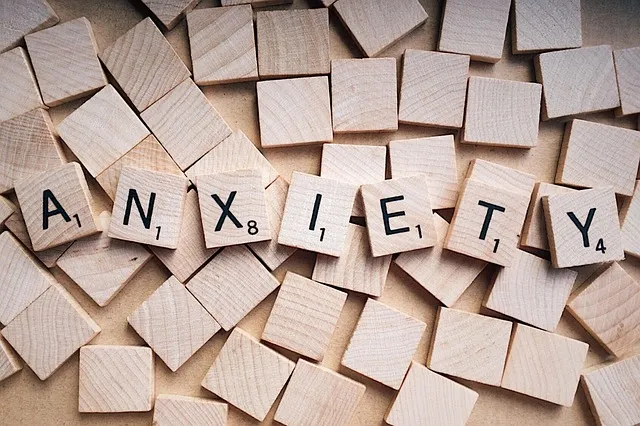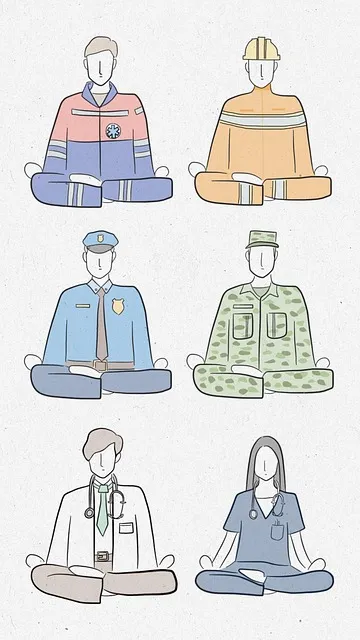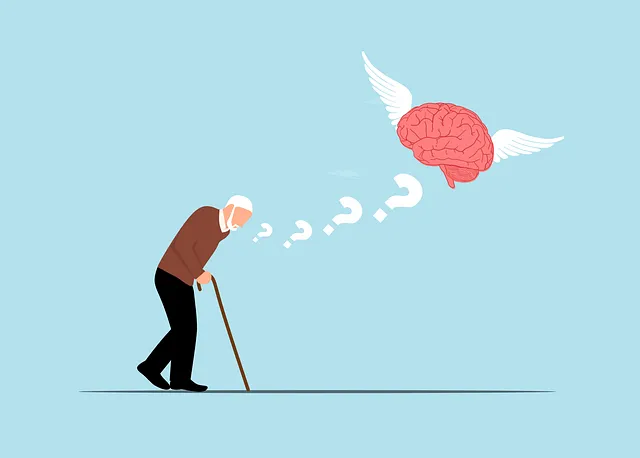Burnout among healthcare providers at Kaiser Permanente's Centennial operations is addressed through a multi-faceted initiative prioritizing mental health support. Recognizing emotional exhaustion's impact on both physical and mental well-being, the program integrates strategies like Community Outreach, Mental Wellness Journaling, and Mindfulness Meditation to build resilience and community. Resources such as dedicated hotlines, therapy services, and social skills training ensure staff can maintain a healthy work-life balance and manage personal challenges alongside professional duties. This comprehensive approach fosters job satisfaction, enhances patient care, and promotes a supportive environment at Kaiser Permanente's Centennial location, emphasizing the importance of mental health in healthcare provider wellness.
Healthcare provider burnout is a pressing issue, impacting patient care and organizational productivity. This article explores strategies to prevent burnout among healthcare workers, focusing on mental health support, work-life balance, and professional environment enhancements. We delve into successful initiatives like Kaiser Permanente’s Centennial Initiative, which highlights the impact of mental health programs. By prioritizing self-care, fostering supportive environments, and investing in continuous training, healthcare organizations can create a resilient workforce, mirroring Kaiser Permanente’s commitment to their employees’ well-being (Kaiser Permanente mental health number).
- Understanding Burnout Among Healthcare Providers: A Growing Concern
- The Impact of Mental Health Support: Kaiser Permanente's Centennial Initiative
- Strategies for Work-Life Balance: Prioritizing Self-Care
- Fostering a Supportive Professional Environment
- Continuous Training and Education: Investing in Long-Term Wellness
Understanding Burnout Among Healthcare Providers: A Growing Concern

Burnout among healthcare providers is a growing concern that demands immediate attention. It’s a state of emotional exhaustion, depersonalization, and reduced personal accomplishment often caused by prolonged exposure to stressful work environments. In organizations like Kaiser Permanente, with its extensive Centennial operations, the pressure on medical professionals can be immense, given the constant demand for quality care and limited resources. This issue is not just about physical fatigue; it significantly impacts mental health, making emotional well-being a critical aspect of healthcare worker prevention strategies.
The growing awareness of burnout’s reach has led to the exploration of various techniques, from self-awareness exercises designed to promote emotional healing processes to comprehensive programs focused on emotional well-being promotion. These initiatives recognize that addressing burnout is not just about coping mechanisms but fostering an environment that supports and uplifts healthcare providers. By integrating these strategies, organizations like Kaiser Permanente can enhance their staff’s resilience and overall satisfaction, ensuring a more sustainable and compassionate healthcare delivery system.
The Impact of Mental Health Support: Kaiser Permanente's Centennial Initiative

Kaiser Permanente’s Centennial Initiative underscores the critical role of mental health support in preventing healthcare provider burnout. This comprehensive program recognizes that addressing mental wellness is as essential as physical well-being, especially given the high-stress nature of the medical profession. By prioritizing mental health, Kaiser Permanente aims to create a more sustainable and supportive work environment for its providers.
The initiative incorporates various strategies, such as implementing Community Outreach Programs designed to foster connections and provide guidance on stress management techniques, including Mental Wellness Journaling Exercises and Mindfulness Meditation practices. These efforts are geared towards enhancing resilience and promoting a sense of belonging among healthcare professionals. The number of mental health resources available is staggering, with dedicated hotlines and accessible therapy services, ensuring that providers have the necessary tools to navigate their personal challenges alongside their professional duties.
Strategies for Work-Life Balance: Prioritizing Self-Care

Maintaining a healthy work-life balance is a critical strategy for preventing burnout among healthcare providers. This involves prioritizing self-care activities that nurture both physical and mental well-being. For members of the Kaiser Permanente team, accessing dedicated mental health resources, such as the Centennial location’s services, plays a pivotal role in achieving this balance. Taking breaks, engaging in regular exercise, and setting clear boundaries between work and personal time are essential practices to foster resilience against burnout.
Furthermore, healthcare professionals can enhance their well-being through social skills training and cultural sensitivity in mental healthcare practice. These initiatives promote healthier interactions with patients and colleagues, reducing the emotional strain often associated with the profession. Additionally, engaging in the production of a mental wellness podcast series can offer a creative outlet for sharing insights and experiences, fostering a sense of community among peers, and contributing to broader mental health awareness efforts.
Fostering a Supportive Professional Environment

Creating a supportive professional environment is a powerful strategy to prevent healthcare provider burnout. Organizations like Kaiser Permanente can play a pivotal role in cultivating this culture by prioritizing mental health resources, such as providing access to confidential counseling through their dedicated mental health number. This initiative ensures that doctors, nurses, and support staff have a safe space to discuss challenges and seek help without fear of judgment. Additionally, fostering open communication channels encourages peer-to-peer support, where colleagues can offer encouragement and practical advice, strengthening the team’s resilience.
Promoting positive thinking and emotional intelligence is another key aspect. Through workshops, training sessions, and mentorship programs, healthcare facilities can empower staff to develop coping mechanisms based on these skills. For instance, teaching emotional awareness enables professionals to recognize signs of burnout in themselves and others, facilitating early intervention. By integrating such practices into the daily routine, Kaiser Permanente’s Centennial location, or any other healthcare setting, can create a supportive ecosystem that enhances job satisfaction and overall well-being.
Continuous Training and Education: Investing in Long-Term Wellness

Healthcare providers’ well-being is a cornerstone of quality patient care, and continuous training plays a pivotal role in preventing burnout. At Kaiser Permanente, for instance, the mental health number serves as a crucial resource for staff seeking support, highlighting the organization’s commitment to member and provider wellness. Regular educational sessions focused on emotional well-being promotion techniques can equip professionals with tools to manage stress and enhance resilience. These programs often include empathy building strategies and social skills training, fostering supportive environments and improving patient interactions. By investing in long-term continuous education, healthcare organizations can create a culture that prioritizes not just clinical expertise but also the holistic emotional needs of both patients and providers.
Beyond technical proficiency, ongoing professional development sessions can delve into coping mechanisms, stress management, and emotional intelligence. These initiatives contribute to preventing burnout by addressing the psychological demands inherent in the healthcare profession. Centering these conversations around empathy building strategies allows medical staff to connect more profoundly with their patients, fostering a supportive atmosphere that benefits both parties. Ultimately, such efforts ensure healthcare providers remain engaged, motivated, and dedicated to delivering exceptional care over the long term.
Healthcare provider burnout is a pressing issue, but by implementing comprehensive strategies, organizations like Kaiser Permanente’s Centennial Initiative demonstrate that supporting mental health and fostering a positive work environment can significantly mitigate this growing concern. The combination of accessible mental health resources, prioritizing self-care through work-life balance, and continuous training equips healthcare professionals with the tools needed to thrive. Embracing these strategies not only benefits individual well-being but also enhances patient care and strengthens the overall healthcare system.






